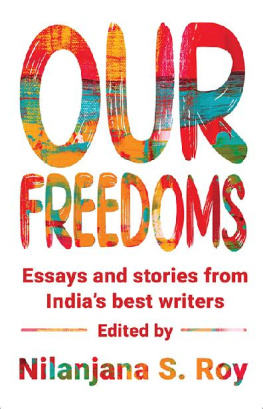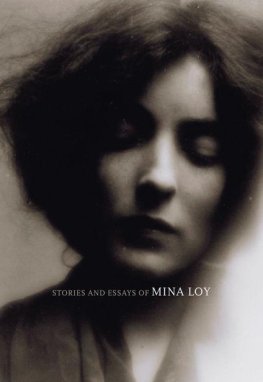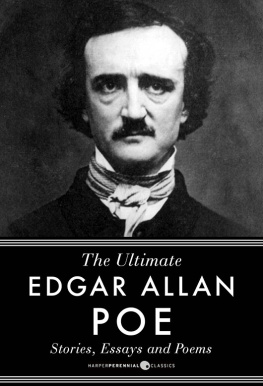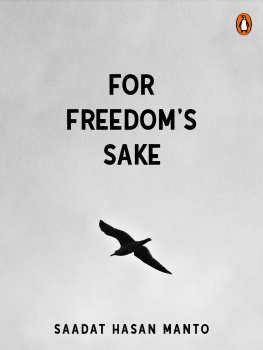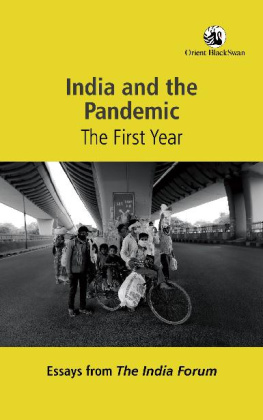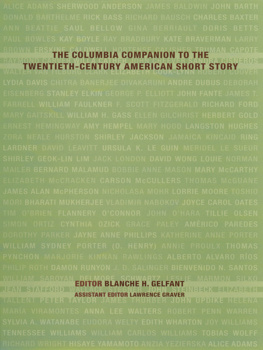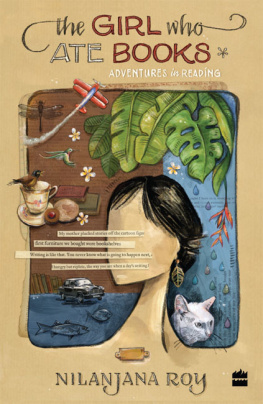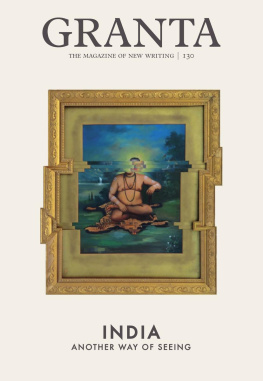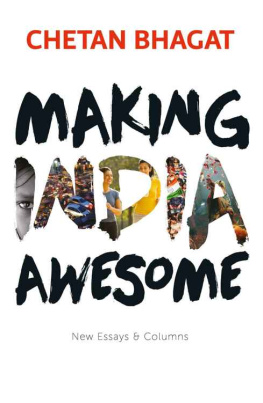One night in the biting cold of the winter of 2019, huddled in a fog so dense with pollution and the last drifting traces of tear gas that they could barely see one another, a group of students and women shared their dreams. They were out in the cold to defend two ideas, one sewn to the other: of belonging to a place and a country, and of a promise made at the time of the countrys independence, a wishful promise of azadi, an elusive but always possible state of freedom.
This was not at the famous protest in Delhis Shaheen Bagh, but in another part of the city. That winter, the discriminatory provisions of the Citizenship (Amendment) Act and the National Register of Citizens law, sharp as a knife aimed at the collective throat of the countrys Muslims, had sparked some of the largest mass protests across the country. The women who led this all-night sit-in faced reprisals from state forces that were all the more brutal and unrestrained because of the lack of media attention. A few knew each other, but most were strangers, coming together in solidarity to protest the new citizenship law.
In the national capital, the events of the past few weeks had been tumultuous, one protest springing up after another, police crackdowns following in their wake. The streets swelled with songs and slogans; in the aftermath of clashes or police beatings, the pavements were sometimes streaked with bloodstains.
Many had placed their lives and bodies on the line to stay up all night, to talk and read, to share their fears and hopes for themselves and for the future of India. Sleep was one of the several casualties of that winter. Few had a peaceful nights rest, even when they took a break at home.
Most nights, people discussed the Constitution and citizenship, or sought news from the many parts of the country, from Kashmir to Assam and Uttar Pradesh, where news of severe repressions, of beatings, torture, mass imprisonment, disappearances, seeped through the few cracks in a wall of silence.
One evening, the impromptu adda was halted so that everybody could help a young mother pick tiny splinters of glass and plastic fragments out of her babys tiny feet. The mother and child had been caught unawares when the programme the singing of patriotic and revolutionary songs, the reading of the Preamble to the Constitution in Hindi and Urdu, some guest speakers talking of Dr B.R. Ambedkar and pluralism was disrupted by goons from a nameless political party. (It had a name, but nobody at this gathering wanted to say it aloud.)
On other nights, the discussion veered to the slender but growing possibility of building solidarities across barriers of religion, class and caste, clasping hands despite the many divisions cemented into Indian lives. Often, people spoke of the waves of hate directed by national television channels at different groups of selected victims: liberals, academics, independent-minded universities, Muslims, Christians, other minorities, creative artists and writers, or anyone who questioned the ruling establishment.
It was past midnight when Zahreen, a lively twenty-one-year-old who hoped to set up her own biotech company some day, said, Tell me what you dream about in this time, and one by one, the group started to share.
Razia, the fifty-year-old mother of three, dreamed every night that the windows of her house were smashed, and that someone she couldnt see was breaking their front door down with an axe. Vipin, a seventeen-year-old medical student, said he dreamed of a suffocating cloud that first choked him, then spread across the country.
One young girl had the same recurring nightmare: she and her friend fled, running through empty streets, clutching one anothers hands, but gradually she lost hold of her friends hand, and she could not find her way back to her again. Someone dreamed of searching through a discarded suitcase for lost papers, someone that he returned home to find that everyone he loved had mysteriously disappeared, their shopping bags and tins of baby milk knocked to the floor.
Zahreen herself sometimes woke up at night convinced that she had heard a loud explosion and that a great monster was roaming silently in the alleys of her neighbourhood. The last one to share was Khadija, seventy-two, who was well known for her ability to produce a seemingly endless supply of biscuits and chocolates from the folds of her burqa.
Every night since this began, she said, I have dreamed the same dream. They go to [Ferozeshah] Kotla and other places, and they drag out the djinns of Delhi, all of them, one by one, catching their smoke and fire in gunnysacks. The sacks wriggle on the ground as the djinns try to break free, but they are held fast, and then bruises come out on the sides of the sacks, you can see them. Then they are bundled into one of their vans, and then oh, it depends. Sometimes the sacks are shot and sometimes they are thrown into the river, but by the end of it, all the djinns are gone.
The group was silent and the air felt frozen, dank with pollution and fear.
Wait, said Khadija. Many nights, my dream doesnt finish here. Whatever is done to the djinns, their forms break apart into smoke and blood, and fill the air and the water and the earth. And slowly, everyone who lives on the earth and breathes this air and drinks that water, they also sicken, everyone suffering from the same plague. Thats it, thats my dream.
Ten days later, a wave of violence, instigated by incendiary speeches made by members of the ruling party who faced no serious legal consequences then or later, devastated several mohallas in north-east Delhi. Some called these the Delhi riots; others called them pogroms.
And a month later, in March 2020, the pandemic reached India, freezing everything in place for a while. That summer, the air felt heavy, still, unfree.
In 1946, a year before India wrested independence from the British, paying a blood price for freedom with Partitions jagged lines of severance, the film Humjoli was screened in theatres across the country.
Noor Jehan sang, Ye desh ye desh humara pyara / Hindustan jahan se nyara / leke rahenge hum azadi / woh din aane wala hai / woh din aane wala hai / leke rahenge hum azadi... In partial translation: this beloved country of ours, we will not stop until weve taken our freedom, that day will come.
Many years later, the azadi chant would return to India via a Pakistani feminist song that went in part, My sisters want their freedom. In the late 1980s Kamla Bhasin created her own feminist version, where women sought freedom from all that held them back. My sisters want freedom, my daughter wants freedom, every womans slogan is freedom. From endless violence, azadi, from helpless silence, azadi, from patriarchy, azadi, from hierarchy, azadi, for breathing freely, azadi, for moving freely, azadi...



